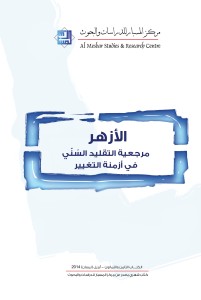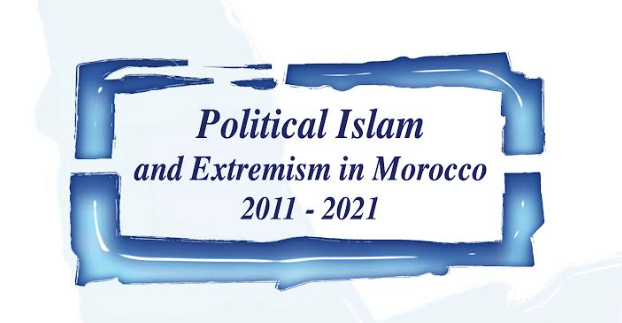 Over a thousand years old, Egypt’s Al-Azhar Islamic Seminary is a venerated point of reference for Sunni Muslims worldwide which has moved history, strengthened the nation-state, and even advanced the field of science in North Africa and the Middle East. It has at times set the very tone of Sunnism. And despite several attempts to restrict its influence, it has maintained its position as an innovator in the Muslim world, weathering many political and religious storms along the way.
Over a thousand years old, Egypt’s Al-Azhar Islamic Seminary is a venerated point of reference for Sunni Muslims worldwide which has moved history, strengthened the nation-state, and even advanced the field of science in North Africa and the Middle East. It has at times set the very tone of Sunnism. And despite several attempts to restrict its influence, it has maintained its position as an innovator in the Muslim world, weathering many political and religious storms along the way.
Al-Mesbar’s 88th monthly book examines Al-Azhar through a series of critical studies, tracing Al-Azhar’s history as well as its function and promise at the present time.
Dr. Radhwan Al-Sayyid, professor of Islamic studies at the Lebanese University and a graduate of Al-Azhar himself, contributes the paper “Al-Azhar: Present and Future Challenges.” It looks to the establishment’s evolving role in light of its present rivalries with other Islamic institutions. In doing so, Al-Sayyid also highlights intellectual dilemmas Al-Azhar has long faced, navigating calls to abandon Islamic traditions, and attempting to mitigate the causes of sectarian strife.
Dr. Mohammed Al-Haddad, the UNESCO Chair in Comparative Studies of Religion at La Manouba University in Tunisia, analyzes three official statements which Al-Azhar has circulated since 2011: “Al-Azhar’s Statement for the Future of Egypt,” “Al-Azhar’s Statement of Fundamental Rights,” and “Al-Azhar’s Statement on the Rights of Women.” Through his analysis, Haddad highlights the institution’s role in politics as well as the articulation of religion for Muslims today. His analysis, in turn, proves a starting point to show what choices its leadership must make in response to challenges in both areas. His paper, “The Azhar Documents: Implications and Meanings,” also explain’s how the institution has attempted to use the new political environment in Egypt to strip Islamists of their moderate veneer, exposing their extremism
Next, Khaldoun ‘Orymet, Lebanon’s General Secretary for the High Council of Islamic Legislation, contributes the study, “Al-Azhar in Egypt: Its History and its Role.” It gives an overview of the social, political, and religious role Al-Azhar has played since its founding and up to the revolution of July 23, 1952.
Vivian Fouad, Social development Advisor to Egypt’s National Council for the Population, addresses the discontinuities in Al-Azhar’s historic relationship with the Egyptian Coptic community throughout major events in the country’s history. It covers Al-Azhar’s leadership and its Coptic counterparts in the struggle against British colonialism, tensions arising since the 70s, and the nature of the relationship following the January 25th, 2011 revolution. The author discusses sectarian tensions over the past 3 years which led Al-Azhar’s leader, Sheikh Ahmed Al-Tayyib, to establish “The House of Egyptian Families,” a foundation bringing together Egyptian mosques with Egyptian Christian Orthodox, Catholic, and Protestant churches, aiming to reduce sectarian strife in the country.
Next, Egyptian researcher Fatima Hafiz explores Al-Azhar’s stance on the “Arab Spring,” reviewing the institution’s response to political changes following the revolution in Egypt, as well as its relationship with the new government in Cairo. Then Lebanese scholar Mohammed al-Sammak, Secretary General of the Muslim-Christian Committee for Dialogue, highlights Al-Azhar’s positive impact in strengthening the rights of non-Muslims to practice their own faiths. Egyptian scholar Muhammad Hilmi contributes the paper, “Al-Azhar and Shi’ism… Shaltout’s Fatwa and Al-Muraja’at,” which explores the uneven relationship between Al-Azhar and various clerics of the Shi’i sect. Husayn al-Qadhi, a specialist in Islamist movements, presents “Al-Azhar and the Muslim Brotherhood – Past and Present,” examining the institution’s positions on the rise and fall of the Brotherhood following the “Arab spring” revolutions.
Bilal Mu’min, an independent Egyptian researcher on Sufism in Egypt, looks at the interplay among Al-Azhar, Egypt’s successive modern governments, and the country’s Sufi orders. The author argues that Sufis, who tend to be religiously devout and culturally conservative, had reached a high level of mutual understanding and tolerance with Al-Azhar. The dynamic began to change, he argues, after the founding of the Muslim Brotherhood in 1928. The final chapter in the book is by Mustafa Zahran, an Egyptian specialist in Islamic movements and Sufi orders. In “Al-Azhar and the Salafis: A History of Intellectual and Dogmatic Rivalry” he explores the controversial relationship between Al-Azhar and Egyptian Salafis, for the most part in the post-Arab Spring era, during which the two sides became closer to one another on policies toward Iran and Shi’ites, women, and Copts.
Senior Fellow Rita Faraj, also a member of Al-Mesbar’s editorial board, reviews Ahmad Mahmud al-Sayyid’s new book, The Future of Al-Azhar after the Arab Revolutions, which looks at the evolving state of affairs within the institution on matters ranging from educational reform to its stance on Egyptian nationalism. Jordanian researcher Mohammed Al-Awawdh’s paper, “The Alawites in Syria,” considers the impact of the Syrian civil war on the country’s Alawite minority community, in light of the sect’s long history.
Al-Mesbar Center extends its gratitude to all the researchers whose contributions made this book possible — and especially Rita Faraj, who took on the responsibility of coordinating and editing the volume.









